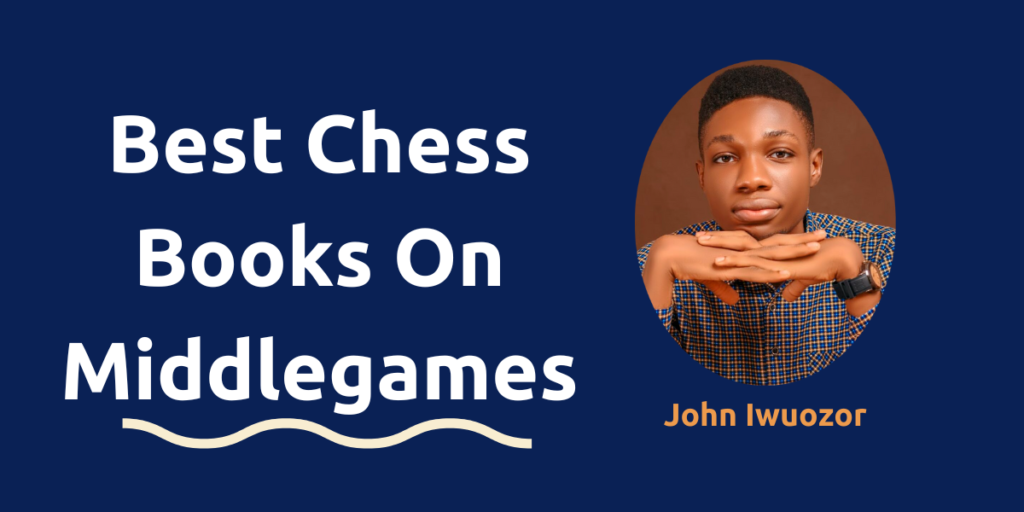In this article, I’ll share some recommended books for middlegame study.
The Middlegame by Max Euwe and Hans Kramer
The first book—and one of the oldest—is “The Middle Game” by Max Euwe and Kramer, specifically the segment titled ‘Book I: Static Features’.
Released in 1964, this English Language edition is still pouring invaluable lessons over half a century later, standing as a testament to its profound quality.
This book dissects positions structure by structure (open game, semi-open game, etc) and provides exhaustive advice on them all right down to the Stonewall Attack. Moreover, it also has comprehensive sections on handling each individual chess piece like knights, rooks, and bishops.
If you aspire to be competitive and dominate every game you play, “The Middle Game” is an essential addition to your chess library.
Winning Chess Strategies by Yasser Seirawan
Even though it’s not a hefty book (around 256 pages), this book by International Grandmaster Yasser Seirawan covers diverse middlegame themes discussed in an enjoyable tone.
This book proves beneficial, especially for players up to around 1200-1800 Elo rating.
How to Reassess Your Chess by Jeremy Silman
Next up, we have How to Reassess Your Chess by Jeremy Silman, a very well-known name among chess players.
This book is worth its fame. It covers various topics including minor pieces, statics vs dynamics flow, pawn structure, and more.
With a higher level of gameplay compared to Seirawan’s book, it’s valuable for players from 1400-2100 Elo rating.
Sacrifice and Initiative in Chess by Ivan Sokolov
Another excellent middle game book is Sacrifice and Initiative in Chess by Ivan Sokolov.
This one leans more towards the attacking strategies.
It’s remarkable for its interesting topics and exemplary explanations, particularly when addressing hard-to-grasp topics like initiative and sacrifice.
50 Essential Chess Lessons by Steve Giddens
Lastly, we have 50 Essential Chess Lessons by Steve Giddens.
It encompasses middle and endgame topics presented through 50 games.
At the end of every game, Giddens provides critical lessons.
I strongly recommend this book, particularly after reading “Winning Chess Strategies” or “How to Reassess Your Chess”.
Despite seeming advanced, it’s written in an accessible language.
Let me know if you found these recommendations useful.
